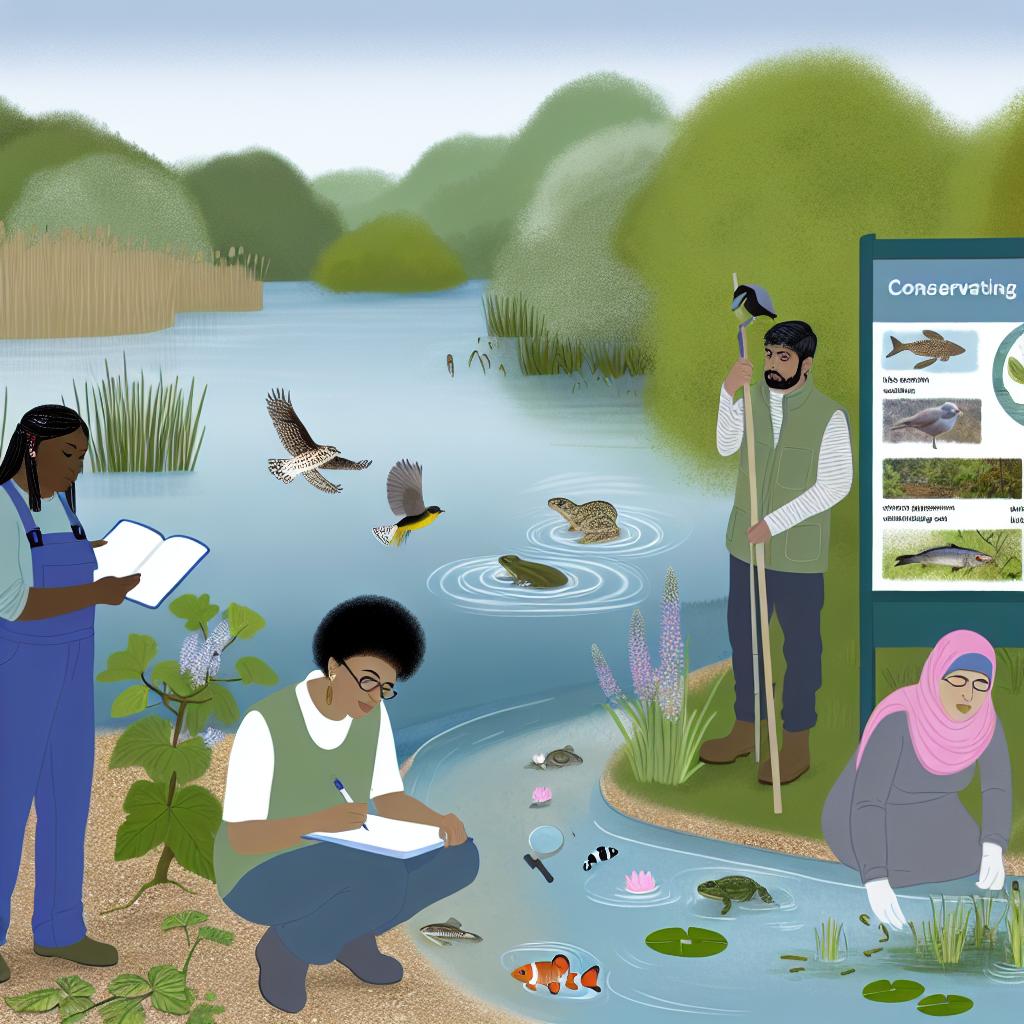Introduction
The freshwater ecosystems of the United Kingdom, which include rivers, lakes, ponds, and wetlands, play an indispensable role in maintaining the country’s biodiversity and overall environmental health. These aquatic habitats are home to a rich variety of species and are integral to numerous ecological processes. They assist in natural functions such as water filtration, acting as natural purifiers that help maintain water quality by filtering out sediments and pollutants. Additionally, they contribute to flood control by absorbing excess rainwater, thereby mitigating flooding risks. Notably, these ecosystems are vital for carbon sequestration, storing carbon that might otherwise contribute to climate change.
Challenges Facing Freshwater Ecosystems
The sustainability of the UK’s freshwater systems is under serious threat from a number of adverse factors, including pollution, invasive species, habitat destruction, and climate change. The growth of industrial activities has been accompanied by increased pollution, with contaminants entering water bodies through numerous pathways. Agricultural runoff is another significant concern, as fertilizers, pesticides, and herbicides used in farming wash into streams and rivers, leading to nutrient pollution that can result in problems like algal blooms, which deplete oxygen and harm aquatic life. Urban expansion adds further stress through increased wastewater and stormwater runoff.
Moreover, the introduction of non-native species has compounded these issues. Species not originally part of local ecosystems often thrive and spread, outcompeting native species for resources and altering habitat dynamics. This can lead to significant biodiversity loss, a reduction in ecosystem services, and altered ecological balances. Climate change further exacerbates these challenges, impacting water temperatures, flow patterns, and availability, which in turn affects the species dependent on these water bodies for survival.
Conservation Strategies
Efforts to conserve the UK’s freshwater ecosystems involve comprehensive strategies that include policy measures, on-the-ground conservation efforts, and community engagement. Successful conservation programs typically require the collaboration of government agencies, non-profit organizations, and local communities.
Legal and Policy Framework
The UK government has enacted several important policies designed to safeguard freshwater habitats. For instance, regulations such as the Environmental Permitting Regulations aim to limit the discharge of pollutants into water bodies, helping to maintain water quality and protect aquatic life. Moreover, the EU Water Framework Directive, maintained even after Brexit, underscores a commitment to achieving a ‘good status’ for all waters. This directive requires countries to set ambitious environmental objectives and implement plans to preserve or enhance their freshwater resources.
Habitat Restoration Projects
Multiple restoration initiatives are deployed across the country to improve the health and resilience of freshwater environments. River re-naturalization projects, for example, involve the removal of physical alterations like dams and weirs to restore a river’s natural flow regime. This allows natural sediment transport processes to resume, benefiting both the river’s ecology and its surrounding landscapes.
Wetland restoration projects aim to reinstate the native plant species that form the basis of these complex ecosystems. In doing so, they help recreate habitats that can support a diverse array of wildlife. Such endeavors not only advance biodiversity but also enhance the ecosystem services wetlands provide, including water purification and flood mitigation.
Species Protection Initiatives
Targeted conservation efforts focus on the protection and reintroduction of at-risk native species. The native white-clawed crayfish, for example, is the subject of breeding and release programs designed to re-establish its populations in suitable environments. Given the threat posed by invasive species like the American signal crayfish, these initiatives include control measures to minimize predation and competition. By managing invasive populations, native species are afforded a better chance to thrive within their habitats.
Community Engagement and Education
The role of local communities in conserving freshwater ecosystems cannot be understated. Educational initiatives are crucial in generating awareness of how ecosystems function, the threats they face, and the importance of adopting sustainable practices. Such programs motivate individuals to become advocates for conservation.
Volunteer groups often take part in clean-up campaigns and citizen science projects. These activities not only assist in practical conservation efforts but also contribute to scientific data collection, aiding in monitoring water quality, species presence, and overall ecosystem health. Such engagement ensures that conservation actions are grounded in community involvement and supported by a well-informed public.
Conclusion
In summary, the conservation of the UK’s freshwater ecosystems calls for a multifaceted approach that addresses both anthropogenic impacts and natural processes. Collaboration across governmental, non-governmental, and local community levels is essential to achieving this goal. Public awareness and engagement are crucial components that support conservation efforts for the health and sustainability of these precious ecosystems. To further explore freshwater conservation initiatives, the Wildlife Trusts website provides a wealth of information and resources.
